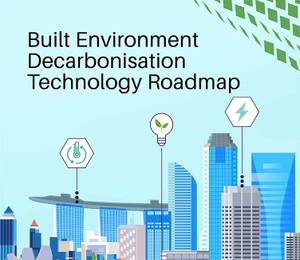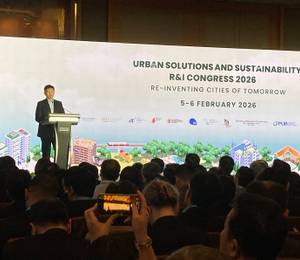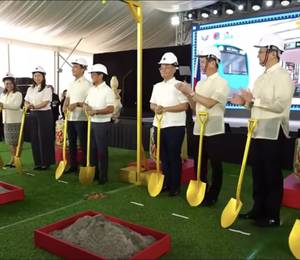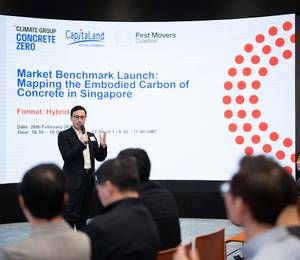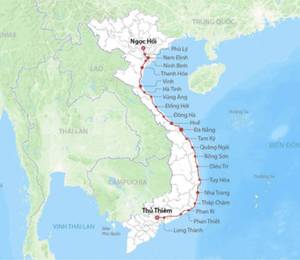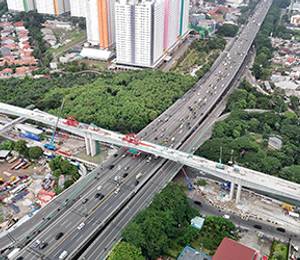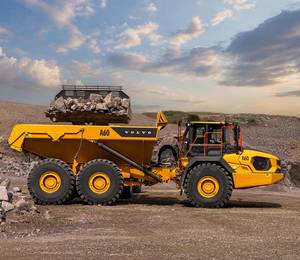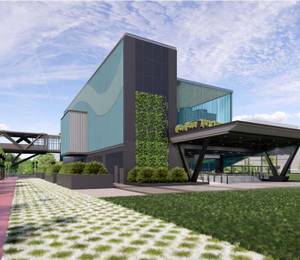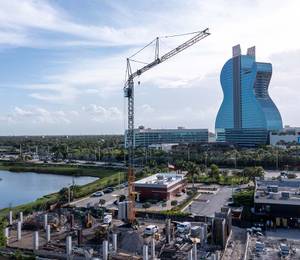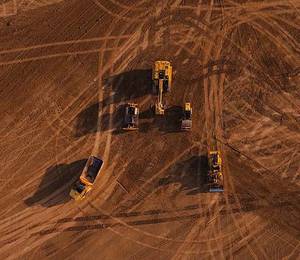Keller, a global provider of specialist geotechnical solutions, has carried out its first-ever vibro concrete column (VCC) project in Singapore. The company said this foundation work for a road in the Lorong Halus area “opens up new benefits for clients and distinguishes Keller in a market more familiar with piling and deep soil mixing.”
For almost 30 years, the Lorong Halus area in eastern Singapore was literally known as the country’s dumping ground. It was home to the country’s largest landfill, built on the site of a former sewage works.
The landfill closed in 1999 and since then, the area has been gradually transformed into an attractive, ecologically diverse coastal wetland. With these positive changes has come the need for greater infrastructure.
The Singapore government has invested heavily in a major roadbuilding programme in Lorong Halus. However, given difficult ground conditions caused by years of buried waste, the consultants in charge of the project turned to Keller.
An innovative alternative
“We were approached by the consultants, who were looking for a solution to the problematic soil,” said Edward Koh Cho Meng, senior business development manager at Keller Singapore. “After analysing the soil conditions, we explored the possibility of using deep soil mixing, vibro stone columns or vibro concrete columns. Based on our analysis, vibro concrete columns were the best solution.
“Our team in Keller Malaysia has faced a similar situation in Penang, Malaysia where VCC was used to support water tanks in Penang’s sewage treatment plant, also built on landfill soil. The nature of the technique introduces concrete into the soil and pushes the problematic, landfill soil to the side. This way, strength gained from the columns are independent of surrounding soils.”
Vibro concrete columns can be used in a variety of soils to reduce settlement and increase bearing capacity, explained Keller. They offer an economical alternative to traditional piling methods and produce very little spoil.
As Keller had not done any previous vibro concrete column projects in Singapore, the company drew on expertise from its vibro global product team, as well as its team in Malaysia.
“With this support, we were able to create a rigorous process design and modify our vibrocat machines accordingly,” said Mr Koh. “We had the opportunity to demonstrate our capabilities to the main contractor by showcasing the long-term success of vibro projects in Malaysia and road projects in Singapore where similar techniques were used.”
The project called for detailed planning. Vibro concrete columns require a continuous supply of a specific concrete mix, and thus Keller coordinated closely with the concrete supplier to ensure the supply satisfied daily requirement.
One of the keys to the project’s success, as Keller pointed out, was pre-loosening the top layer of stiff soil – which had been heavily compacted with years of domestic waste – so that the company’s vibrator could penetrate the soft clay layer below.
Keller started on site in mid-January 2020 and completed the project three weeks ahead of schedule, owing to the VCC method.
“The client visited the site in February to see how the project was going and was really impressed with the quality of our work, site control and safety,” said Mr Koh. “That’s all thanks to the excellent cooperation between our business development, design and operation teams, overseen by our management. Together they ensured everything on the job was done in accordance to Keller’s high safety and quality standards.
“By proving our capabilities on this project, we can now offer vibro concrete columns as an alternative technique, adding value to our Singapore clients and giving us a competitive advantage in a marketplace largely offering conventional piling methods and deep soil mixing.”
